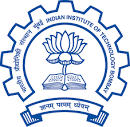Similarly, membrane technology & applications for the Oil and gas Industry is become very important due to its application in many processes, such as effluent reduction applications, product separation such as hydrocarbon, gas separation, and oil emulsion separation.

The commercial success of membrane technology is one indicator showing its importance in various applications. The benefits of membrane process applications include reduced operating costs relative to competitive technology, product savings, recovery of by-products, water, energy, chemicals savings, etc.
Similarly, membrane technology & applications for the Oil and gas Industry is become very important due to its application in many processes, such as effluent reduction applications, product separation such as hydrocarbon, gas separation, and oil emulsion separation.
Membrane processes are classified based on the diverse driving forces. Some of these processes rely on pressure differences, including microfiltration, ultrafiltration, nanofiltration, and reverse osmosis.
Meanwhile, others harness alternative driving forces, such as concentration differences in forward osmosis and for thermal gradients employed in membrane distillation and thermo osmosis and electric fields applied in electrodialysis.
In the proposed short-term course, we will focus on the major aspects of membrane technology for oil and gas industries, such as gas separation, oil and hydrocarbon separation, and wastewater treatment, with some aspect of life cycle analysis of these systems in the oil and gas industry context.
Broad Objectives:
In the proposed short-term course, we will focus on the major aspects of membrane technology, starting from the basic application of membrane technology for oil and gas industry, polymer chemistry for the membranes, ion exchange processes membranes for gas separation, oil-water separation, hydrocarbon separation, and membranes for desalination and wastewater treatment and how we can achieve zero liquid discharge by using membrane technology.
Furthermore, we will focus the session on the life cycle analysis of the membrane technology considering the energy demand and CO2 reduction.
By The End Of This Course, Participants Will Be Able To:
Understanding of pressure-driven, concentration-driven, and thermal-driven membrane processes for the oil and gas industry
Membranes for the gas separation: Fundamentals, fabrication, and processes
Membranes for oil and hydrocarbon separation: Fundamentals, fabrication and processes
Ion exchange membranes for oil and gas industry: Fundamentals, fabrication and processes
Membranes for desalination and wastewater recycling: Fundamentals, fabrication and processes
Life cycle analysis concept
Established in 1958, the second of its kind, IIT Bombay was the first to be set up with foreign assistance. The funds from UNESCO came as Roubles from the then Soviet Union.
In 1961 Parliament decreed the IITs as ‘Institutes of National Importance'. Since then, IITB has grown from strength to strength to emerge as one of the top technical universities in the world.
The institute is recognised worldwide as a leader in the field of engineering education and research. Reputed for the outstanding calibre of students graduating from its undergraduate and postgraduate programmes, the institute attracts the best students from the country for its bachelor's, master's and doctoral programmes.
Research and academic programmes at IIT Bombay are driven by an outstanding faculty, many of whom are reputed for their research contributions internationally.
IIT Bombay also builds links with peer universities and institutes, both at the national and the international levels, to enhance research and enrich its educational programmes.
The alumni have distinguished themselves through their achievements in and contributions to industry, academics, research, business, government and social domains.
The institute continues to work closely with the alumni to enhance its activities through interactions in academic and research programmes as well as to mobilise financial support.
Over the years, the institute has created a niche for its innovative short-term courses through continuing education and distance education programmes.
Members of the faculty of the institute have won many prestigious awards and recognitions, including the Shanti Swaroop Bhatnagar and Padma awards.
Located in Powai, one of the northern suburbs of Mumbai, the residents of the institute reap the advantage of being in the busy financial capital of India, while at the same time enjoying the serenity of a campus known for its natural beauty.
A fully residential institute, all its students are accommodated in its 15 hostels with in-house dining; the campus also provides excellent amenities for sports and other recreational facilities.
© 2025 coursetakers.com All Rights Reserved. Terms and Conditions of use | Privacy Policy